Cover Story
D-Link’s Approach to Next-Gen Networking Solutions
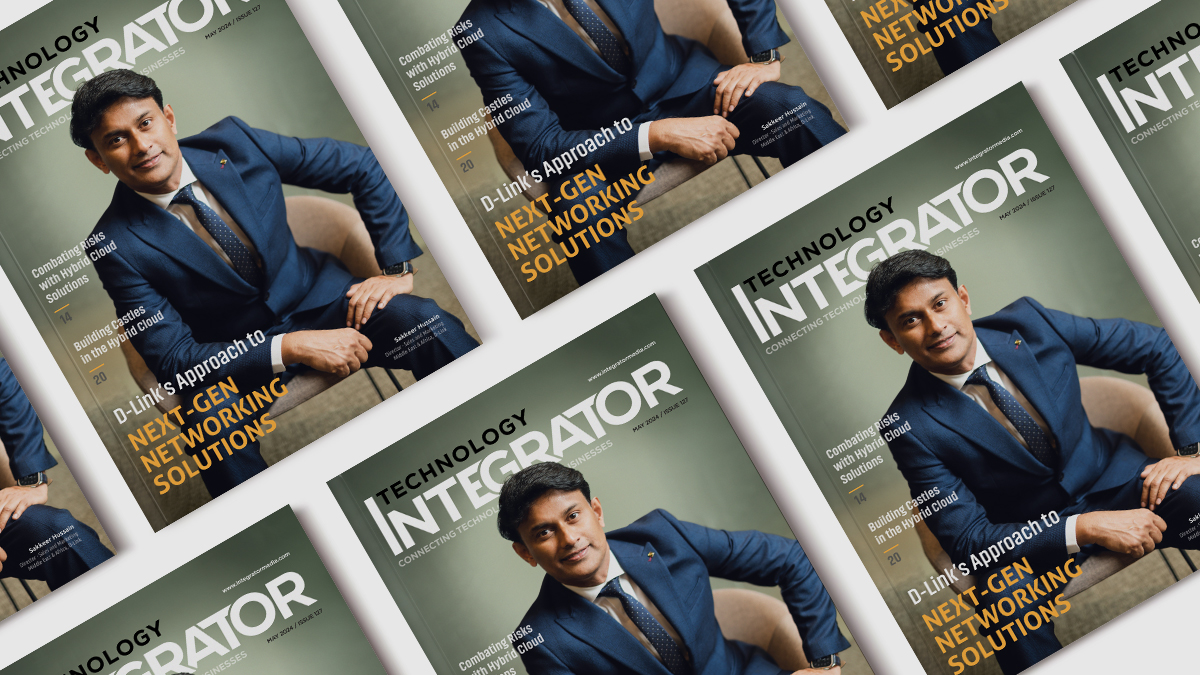
The Integrator recently interviewed Sakkeer Hussain, Director- Sales & Marketing Middle East & Africa, D-Link.
Sakkeer discussed how D-Link uses cloud technologies to improve their products across different categories. He emphasized the benefits of cloud technology for D-Link products: convenience, security, scalability, and improved user experience.
Could you provide us with insights into how D-Link incorporates cloud technologies into its product portfolio, particularly with cloud routers, cameras, and managed access points?
At D-Link, we integrate cloud technologies into various aspects of our product portfolio, to offer users remote access, manageability, and enhanced functionality.
D-Link cloud routers can be configured and managed remotely through a web interface or mobile app. This allows users to monitor their network status, adjust settings, and troubleshoot issues from anywhere with an internet connection. Some of these routers offer cloud-based security features like intrusion detection and prevention systems. These systems can help identify and block potential security threats on the network. We also have cloud-based parental controls, allowing users to manage internet access for their children by filtering websites, scheduling internet access times, and blocking specific applications.
When it comes to our cloud cameras, users can view live footage and recordings remotely through a mobile app or web interface. This enables users to keep an eye on their homes or businesses from anywhere. Cloud-based motion detection allows cameras to send alerts to users’ smartphones or emails whenever motion is detected. This can help monitor potential security breaches. Some D-Link cloud cameras offer cloud storage for video recordings. This eliminates local storage devices and allows users to access recordings anytime, anywhere.
As you might be aware, we offer cloud-based management platforms for our managed access points. These platforms allow network administrators to remotely configure, monitor, and troubleshoot multiple access points from a single location.
By incorporating cloud technologies, we aim to provide users with a more convenient, secure, and scalable networking experience, which we have successfully done to date.
How do you foresee cloud-managed networks shaping the future for businesses, and what role does D-Link play in driving innovation in this space?
Cloud-managed networks are poised to revolutionize business networking, and D-Link is well-positioned to be a key player in this transformation.
Imagine juggling a bunch of Wi-Fi routers at different offices – that’s what managing networks can feel like for businesses without a big IT team. Cloud-based platforms are like magic wands for these situations. They also help save manpower. Instead of wrestling with each router individually, you can log into one simple dashboard from anywhere. This lets you see everything that’s going on at all your offices, fix any issues that pop up, and keep your network running smoothly – all without needing a team of tech experts. It’s a real time-saver. Cloud-managed networks can also offer advanced security features like threat detection and automated updates, keeping business networks safer. Thanks to the cloud’s scalability feature, businesses can easily add or remove devices to their network as needed. So for sure, it is going to shape the future of a digital-first environment.
D-Link is already driving many innovations in this space. We introduced Nuclias range of solutions back when it was critical for organizations to have such a solution for business continuity. We focus on developing interconnectivity and user-friendly cloud management platforms that are intuitive and easy for even non-technical users to navigate. We also ensure to integration of advanced cybersecurity into our managed networking solutions.
Can you give us an overview of the features and functionalities of D-Link’s newest product, the AQUILA PRO AI M60 AX6000 Smart Mesh Wi-Fi 6 system?
The D-Link AQUILA PRO AI M60 AX6000 Smart Mesh Wi-Fi 6 system is a feature-rich offering designed to deliver high-speed, reliable Wi-Fi coverage throughout your home. With its AI-powered optimization, mesh networking capabilities, and robust security features, the M60 aims to provide a future-proof networking solution for demanding households.
Some highlights of the product are as follows –
· The M60 boasts AX6000 dual-band Wi-Fi 6 technology, delivering speeds of up to 6 Gbps. This translates to blazing-fast internet for smooth streaming, lag-free gaming, and efficient handling of multiple connected devices.
· The M60 utilizes a powerful antenna design coupled with AI technology to provide comprehensive 360-degree Wi-Fi coverage throughout your home. This eliminates frustrating dead zones and ensures a seamless connection wherever you are.
· The M60 functions as a standalone router, but it also has built-in mesh capabilities. This allows you to add additional AQUILA PRO AI routers or extenders to your network in the future, creating a mesh system for even larger homes.
· The M60 leverages AI to automatically scan and select the best channels with minimal interference, optimizing your Wi-Fi performance.
· The AI tech also enables self-healing mesh capabilities, ensuring your network automatically recovers from any minor disruptions.
· The M60 offers advanced Quality of Service (QoS) with AI-powered network prioritization. This allows you to prioritize bandwidth for specific devices or activities, ensuring smooth operation for critical tasks like video conferencing.
· The M60 comes with built-in security features like WPA3 encryption to help safeguard your home network. Additionally, it offers premium parental controls to manage internet access for your children.
· The M60 is designed for user-friendly setup and management through the intuitive AQUILA PRO AI app. This app guides you through the installation process and allows you to monitor your network performance.
How does D-Link view environmentally friendly technologies and the associated costs involved in designing products aimed at reducing carbon footprint and conserving energy?
We think it is critical to have sustainability at the heart of everything we do.
We take pride in our ‘Green Technology’ agenda, which we introduced for our channel partners and end-user customers in the region. Thirteen years ago, D-Link was the first to introduce the industry’s first ‘Green Ethernet’ technology with a series of environmentally friendly small office, home office (SOHO) Gigabit switches that decrease energy costs by reducing power consumption without sacrificing operational performance and functionality. D-Link has continued this ethos and today, we continue to develop green networking technology, which allows our products to reduce power consumption drastically.
AI can play a key role in enabling us to create environmentally friendly technologies that are cost-effective and user-friendly, without compromising on the design and quality.
Could you share some insights from the recent Distributor Meet 2024 hosted by D-Link Middle East & Africa in Bali, Indonesia?
D-Link’s regional distributor meet was a memorable experience, it was all about saluting collaboration and recognizing the incredible partnerships we have built over the years. The event brought together our top distributors from across the Middle East and Africa. We recognized the outstanding achievements and contributions of these distributors to D-Link’s success. Additionally, D-Link’s senior management presented insightful information on current market trends and shared their strategic roadmap for the future. The event was also a platform for our distributors to share valuable feedback with us on market challenges, customer preferences, and areas for improvement in D-Link’s products and services. We also had several team-building and networking sessions.
How does D-Link plan to maintain and strengthen its partnerships with distributors and stakeholders in the Middle East & Africa region moving forward?
At D-Link, we ensure our partners know we are there for them. For any successful collaboration – communication, shared vision, clear goals, and passion are important and this is what we share with our distributors and partners. We will continue to host regular meets and training workshops, develop strong partner programs and incentives, and provide unwavering support to foster enhanced collaborations. We look forward to continuing to inspire and empower D-Link’s network of distributors and channel partners to thrive in today’s competitive market.
Cover Story
Inside Zoho’s UAE Data Centers!
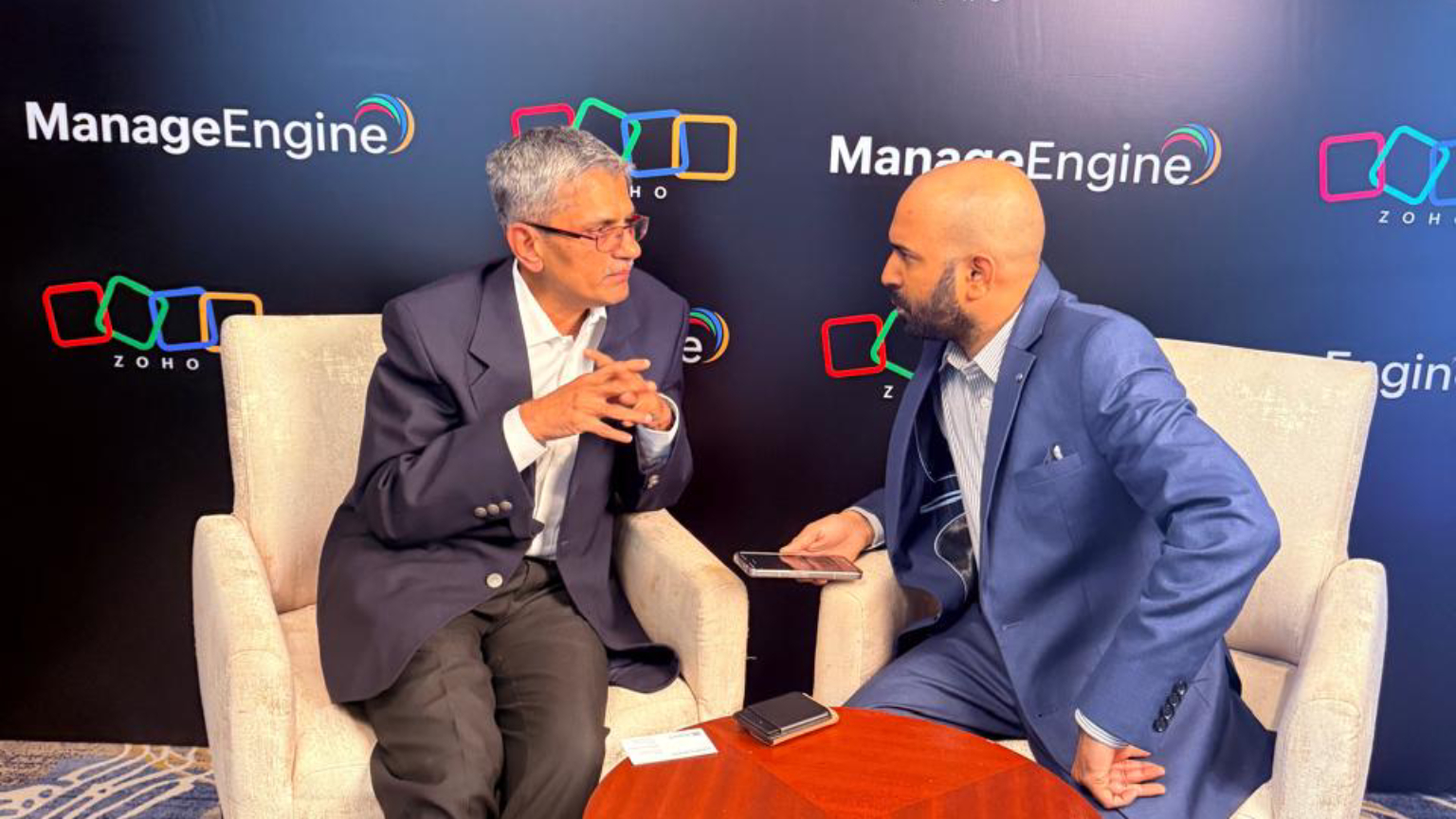
Playing the Long Game in Cloud Infrastructure, Data Centers, Privacy, Cybersecurity, and Growth in the UAE
The Integrator had an interview with Shailesh Davey, Co-founder & CEO, Zoho, during the official launch of their newly opened data centers in the UAE.
Zoho is on an executing path; as they say, it is a disciplined, long-term regional strategy by deploying and right-sizing data centers in Saudi and the UAE, aligning with global trends in data sovereignty and privacy.
The UAE is a priority growth market fueled by regulatory and business-led digitization, supported by local teams and partners. Customers will see faster performance from local hosting, while flagship products Zoho CRM Plus and Zoho Books lead growth, with rapid regulatory feature alignments.
Zoho currently operates more than 18 data centers globally, with the UAE being the latest addition. From a regional perspective, does the Middle East require more data centers, or are the facilities in the UAE and Saudi Arabia sufficient to support Zoho’s growth plans?
We currently operate two data centers in Saudi Arabia, which primarily serve the Saudi market. In the UAE, we have now established two data centers—one in Dubai and another in Abu Dhabi. These facilities have been carefully right-sized based on our expected growth in the region.
We have been present in this market since 2009, so we have a clear understanding of customer adoption patterns, data usage behavior, and growth trajectories. Based on this data, we have ensured sufficient capacity for the next two to four and a half years. Every six months, our teams review capacity utilization and growth rates. If we see demand growing faster than anticipated, we simply expand further.
This approach isn’t new for us—we’ve been doing this consistently since 2006–2007.
Zoho is widely known for its capital discipline and strong stance on privacy. With increasing global rhetoric around cybersecurity, data sovereignty, and regulations—especially in markets like the UAE—do you believe governments are emphasizing certifications due to a trust deficit with large tech companies, or is this part of a broader global shift?
There are a few important factors at play here. First, some of the world’s largest technology companies have built their businesses by monetizing user data. This is openly acknowledged as part of their business model. While it may be legal, it understandably creates discomfort—especially for governments concerned about the data of their citizens, and for individuals who often accept terms and conditions without fully realizing what they are agreeing to.
Second, we are now living in a rapidly evolving geopolitical environment. The shift toward a multipolar world has accelerated significantly over the last couple of years. In this context, it is only practical for governments to introduce regulations that ensure clarity around where data resides, how it is handled, and whether companies are compliant with local laws.
From Zoho’s perspective, this has always aligned with our philosophy. Wherever we set up data centers, we comply fully with local regulations and data sovereignty requirements. Certifications and compliance are simply proof points of that commitment.
Zoho has seen strong growth in the UAE. Which flagship products are driving this momentum, and how does the establishment of local data centers translate into tangible benefits for businesses in terms of innovation and performance?
Let me start with the impact of the data centers. The most immediate and visible benefit is speed. Earlier, customer data was being served from the US, which meant latency due to the physical distance. With local data centers in the UAE, response times are significantly faster. This directly improves user experience, in addition to meeting security and compliance requirements.
In terms of products, our fastest-growing solution in the UAE is Zoho CRM Plus. For any business, sales is a critical function, and CRM Plus is a comprehensive, customer-facing suite that supports sales, marketing, customer support, service, and even project management.
The second major growth driver is Zoho Books, which is widely used by finance and accounting teams. With increasing regulatory requirements around accounting, compliance, and e-invoicing in the UAE, Zoho Books helps businesses stay compliant while maintaining accurate and transparent financial records.
Given the pace at which regulations are evolving, especially in areas like e-invoicing, our local presence allows us to respond very quickly. We see significant long-term potential for both CRM Plus and Zoho Books in this market.
One of Zoho’s recent consumer-focused initiatives Aaratai application has gained strong traction in India and has generated a lot of discussion. Do you see similar B2C-led innovations helping Zoho reach a wider audience in the UAE as well? Could we see such solutions being developed or localized for this market?
This has been an interesting experiment for us. What we’ve essentially done is take the technology we built for the B2B world, adapt it, and make it accessible to B2C users. That’s how this particular app was born, and it received strong tailwinds in the Indian market.
Interestingly, due to the large Indian diaspora in the UAE, adoption naturally extended here as well. Our immediate focus is to ensure that the product is reliable, feature-rich, and delivers long-term value to users.
Once we are confident that the model works at scale, we will look at expanding into other markets where there is strong synergy. Markets with a significant Indian diaspora are a natural starting point, and Europe is high on that list.
Automotive
Goodyear continues support for Team De Rooy in the 2025 Dakar Rally
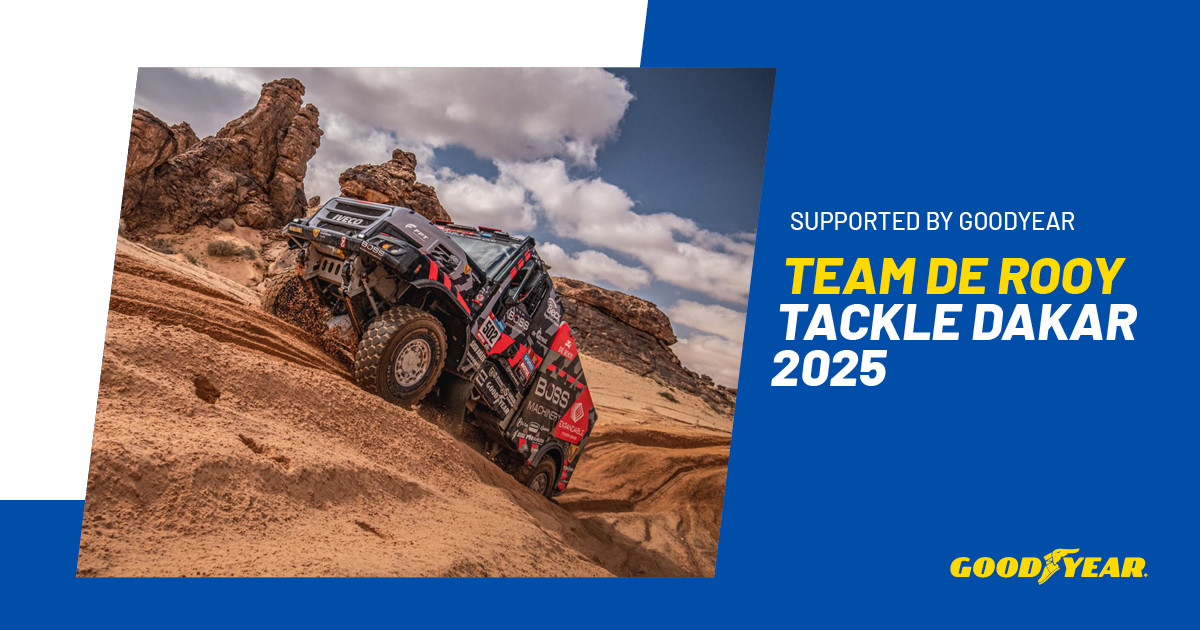
Goodyear continues its partnership with Team De Rooy for the upcoming Dakar Rally 2025. As the official tire supplier, Goodyear will equip the Dutch team with its high-performance Goodyear OFFROAD tires and advanced Tire Pressure Monitoring System (TPMS), helping to ensure reliable performance throughout the rally’s demanding stages. This collaboration highlights Goodyear’s dedication to truck motorsport, combining innovation with proven durability on some of the world’s toughest terrains.
Dakar 2025: new challenges await
The 2025 Dakar Rally, running from January 3 to January 17, will cover nearly 8,000 kilometers, including over 5,000 kilometers of competitive stages, starting in Bisha and finishing in Shubaytah. This edition ramps up the difficulty, featuring an early 48-hour chrono stage that flows into the marathon stage, setting a challenging pace from the outset. In the second week, competitors will tackle the demanding dunes of the Empty Quarter, with over 45% of the course on separate tracks for different vehicle classes, enhancing safety while complicating navigation.
Goodyear OFFROAD tires and TPMS: performance in challenging conditions
Team De Rooy relies on Goodyear OFFROAD tires for their durability and reliable traction across different conditions. Designed to handle heat and challenging surfaces, these tires help reduce heat buildup at high speeds and provide consistent performance on sand, rocks, and steep slopes.
Goodyear’s TPMS offers real-time monitoring of tire pressure and temperature, helping the team make quick adjustments and avoid potential issues. This advanced system helps to minimize downtime and supports better strategic decisions—crucial for maintaining momentum during the rally.
A Legacy of motorsport excellence
Goodyear’s continued support of Team De Rooy highlights its long-standing commitment to truck motorsport. As the title sponsor of the Goodyear FIA European Truck Racing Championship (ETRC), Goodyear uses motorsport as a proving ground for tire technology advancements. The partnership with Team De Rooy reflects this commitment, driving innovation and performance in demanding environments.
Maciej Szymański, Marketing Director Commercial EMEA at Goodyear, commented:
“Our continued collaboration with Team De Rooy for Dakar 2025 underscores our commitment to supporting motorsport teams in extreme conditions. With Goodyear OFFROAD tires and TPMS, we aim to provide the reliability needed to tackle the rally’s challenges. We wish Team De Rooy all the best and look forward to another exciting competition at this iconic rally”.

Cover Story
PLAUD Note Pro: This Tiny AI Recorder Might Be the Smartest Life Upgrade You Make!

By Srijith KN
I’ve been using the Plaud Note Pro for over three months now, and this is a device that has quietly earned a permanent place in my daily life now. Let me walk you through what it does—and why I say that so?
Well at first I thought this wasn’t going to do much with my life, and by the looks of it Plaud Note Pro looks like a tiny, card-sized gadget—minimal, unobtrusive to carry it around.
With a single press of the top button, it starts recording meetings, classes, interviews, or discussions. Once you end your session, the audio is seamlessly transferred to the Plaud app on your phone, where it’s transformed into structured outputs—summaries, action lists, mind maps, and more.
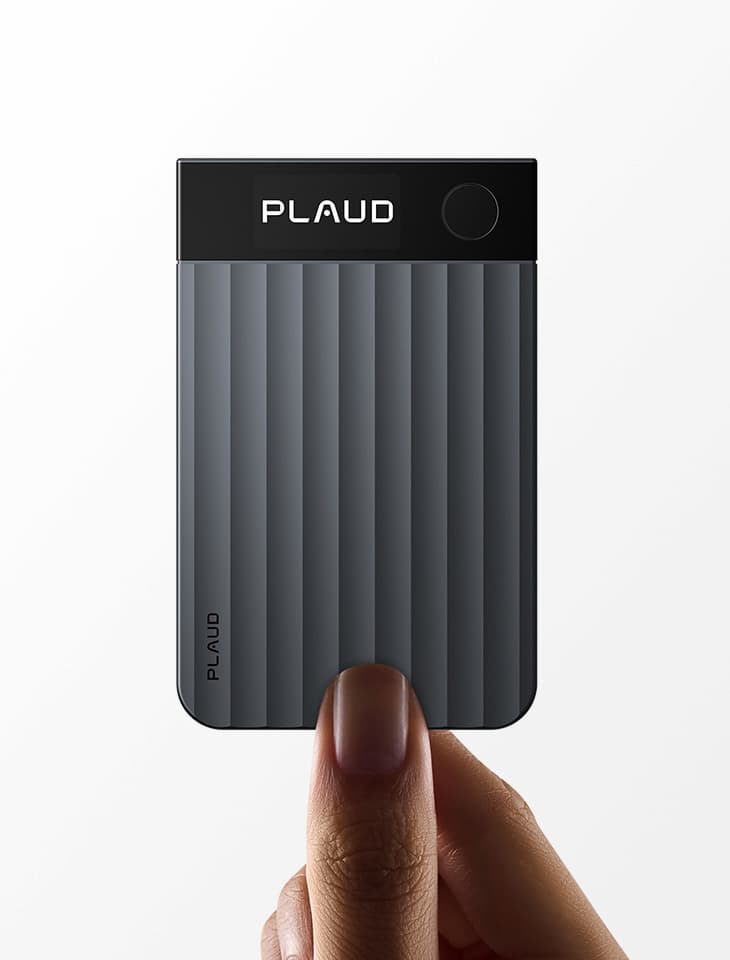
In essence, it’s a capture device that takes care of one part of your work so you can concentrate on the bigger game.
Design-wise, the device feels premium, it features a small display that shows battery level, recording status, and transfer progress—just enough information without distraction. The ripple-textured finish looks elegant and feels solid, paired with a clean, responsive button. It also comes with a magnetic case that snaps securely onto the back of your phone, sitting flush and tight, making it easy to carry around without thinking twice.
Battery life is another standout. On a full charge, the Plaud Note Pro can last up to 60 days, even with frequent, long recording sessions. Charging anxiety simply doesn’t exist here.
Well, my impressions about the device changed once I had an audio captured. I tested this in a busy press conference setting—eight to ten journalists around me, multiple voices, ambient noise—and the recording came out sharp and clear. Thanks to its four-microphone array, it captures voices clearly from up to four to five meters away, isolating speech with precision and keeping voices naturally forward. This directly translates into cleaner transcripts. It supports 120 languages, and yes, I even tested transcription into Malayalam—it worked remarkably well, condensed the entire convo-interview that I had during an automotive racing show that I was into.
Real meetings or interviews are rarely happens in a neat environment, and that’s where I found the Plaud Note Pro working for me. It captures nuances and details I often miss in the moment. As a journalist, that’s invaluable. The app also allows you to add photos during recordings, enriching your notes with context and visuals.
I tested transferring files over 20 minutes long, and the process was smooth and quick. Accessing the recordings on my PC via the browser was equally intuitive—everything is easy to navigate and well laid out.
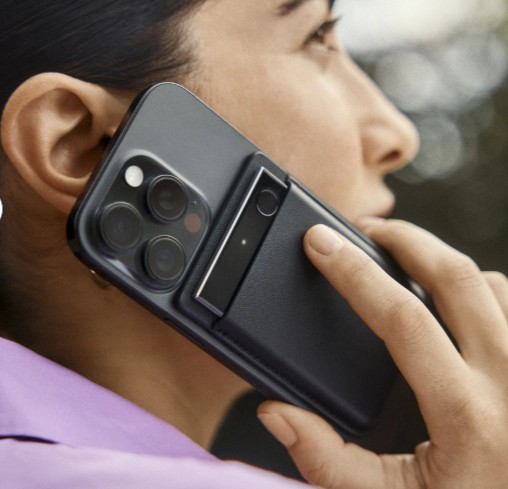
Now to what is inside this tiny recorder. Well, the core of the experience is Plaud Intelligence, the AI engine powering all Plaud note-takers. It dynamically routes tasks across OpenAI, Anthropic, and Google’s latest LLMs to deliver professional-grade results. With over 3,000 templates, AI Suggestions, and features like Ask Plaud, the system turns raw conversations into organized, searchable, and actionable insights. These capabilities are available across the Plaud App (iOS and Android) and Plaud Web.
Privacy is what I happen to see them look at seriously. All data is protected under strict compliance standards, including SOC 2, HIPAA, GDPR, and EN18031, ensuring enterprise-grade security.
What makes the AI experience truly effective is the quality of input. Unlike a phone recorder—where notifications, distractions, and inconsistent mic pickup interfere—the Plaud Note Pro does one job and does it exceptionally well. It records cleanly, consistently, and without interruption, delivering what is easily one of the smoothest recording and transcription experiences I’ve used so far.
I’m genuinely curious to see how Plaud evolves this product further. If this is where they are today, the next version should be very interesting indeed.
“The Plaud Note Pro isn’t just a recorder; it’s a pocket-sized thinking partner that captures the details so you can think bigger, clearer, and faster.”
- Plaud Note Pro is now available for pre-order at https://uae.plaud.ai/pages/plaud-note-pro
- Plaud Note and NotePin are available at https://uae.plaud.ai
-

 Tech News2 years ago
Tech News2 years agoDenodo Bolsters Executive Team by Hiring Christophe Culine as its Chief Revenue Officer
-
News10 years ago
SENDQUICK (TALARIAX) INTRODUCES SQOOPE – THE BREAKTHROUGH IN MOBILE MESSAGING
-

 VAR11 months ago
VAR11 months agoMicrosoft Launches New Surface Copilot+ PCs for Business
-

 Tech Interviews2 years ago
Tech Interviews2 years agoNavigating the Cybersecurity Landscape in Hybrid Work Environments
-

 Tech News8 months ago
Tech News8 months agoNothing Launches flagship Nothing Phone (3) and Headphone (1) in theme with the Iconic Museum of the Future in Dubai
-

 Automotive1 year ago
Automotive1 year agoAGMC Launches the RIDDARA RD6 High Performance Fully Electric 4×4 Pickup
-

 VAR2 years ago
VAR2 years agoSamsung Galaxy Z Fold6 vs Google Pixel 9 Pro Fold: Clash Of The Folding Phenoms
-

 Tech News2 years ago
Tech News2 years agoBrighton College Abu Dhabi and Brighton College Al Ain Donate 954 IT Devices in Support of ‘Donate Your Own Device’ Campaign



















